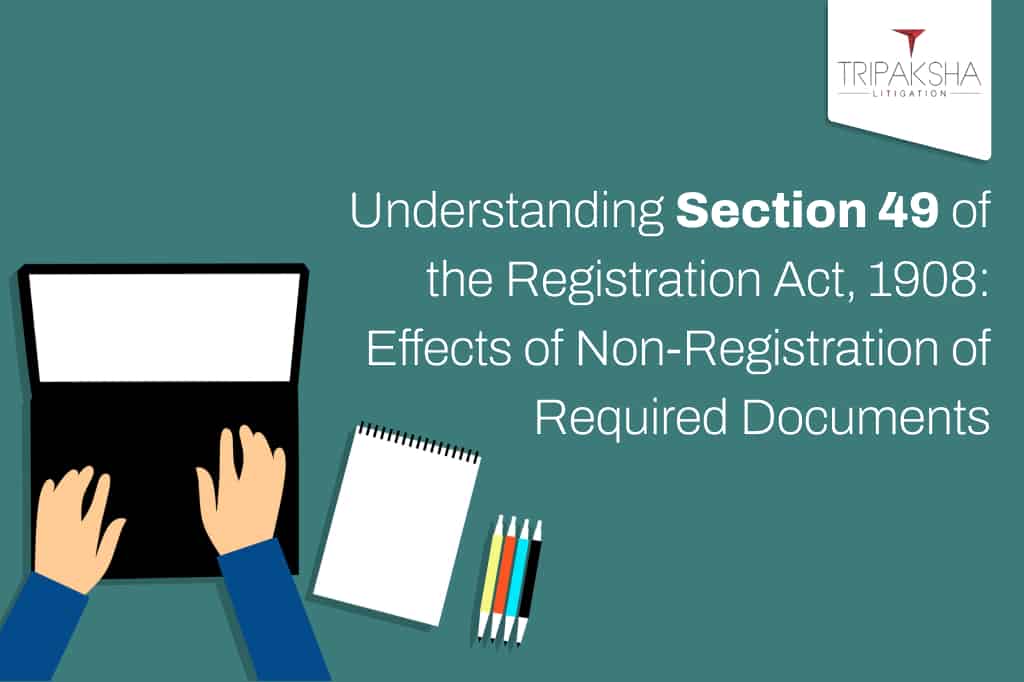Introduction:
The Registration Act, of 1908, is a crucial legislation governing the registration of various documents in India, ensuring transparency and legal validity in property transactions. Among its provisions, Section 49 holds significant importance as it outlines the repercussions of failing to register documents that are legally mandated to be registered. Understanding the intricate legal details and implications of non-registration under Section 49 is paramount for individuals and entities involved in transactions requiring documentation.
Legal Framework: Section 49 of the Registration Act, 1908, deals explicitly with the consequences of non-registration of documents that are compulsorily registrable under the Act. According to this section, any document that is required to be registered but is not registered does not confer any rights or liabilities upon any party involved. Let’s delve deeper into the legal intricacies surrounding Section 49:
- Document Subject to Registration: Section 17 of the Registration Act enumerates documents that are mandatorily required to be registered, including but not limited to sale deeds, gift deeds, lease agreements, mortgages, and certain types of powers of attorney. Any document falling within the ambit of Section 17 must be registered to be legally effective.
- Inadmissibility as Evidence: Subsection (1) of Section 49 stipulates that an unregistered document shall not be received as evidence of any transaction affecting the property therein or any collateral transaction. This means that parties cannot rely on unregistered documents to prove their rights or interests in a court of law.
- Operative Effect of Unregistered Documents: Subsection (2) elucidates that an unregistered document affecting immovable property does not operate to create, declare, assign, limit, or extinguish any right, title, or interest in such property. Therefore, any transaction purportedly reflected in an unregistered document holds no legal validity.
- Priority of Subsequent Purchasers: Subsection (2) further emphasizes that an unregistered document is void against any subsequent purchaser of the same property in good faith and for valuable consideration, who is not privy to the original unregistered transaction. This protects the rights of innocent third parties who acquire interests in the property without notice of the unregistered document.
- Penalties and Consequences: Non-registration of documents as required by law may attract penalties or fines, and in certain cases, may even lead to the invalidation of the transaction itself. It is essential for parties to adhere to the registration requirements to avoid legal repercussions.
Importance of Compliance: Compliance with the registration requirements under the Registration Act, 1908, is indispensable to ensure the validity and enforceability of documents pertaining to property transactions. Parties must meticulously adhere to the statutory provisions mandating registration to protect their interests and avoid legal complexities and disputes in the future.
Conclusion:
Section 49 of the Registration Act, of 1908, serves as a pivotal provision in the legal framework governing property transactions in India. Non-registration of documents not only renders them legally ineffectual but also exposes parties to potential disputes, losses, and legal liabilities. Therefore, it is incumbent upon individuals and entities involved in property dealings to meticulously understand and comply with the registration requirements stipulated by law to safeguard their interests effectively.

